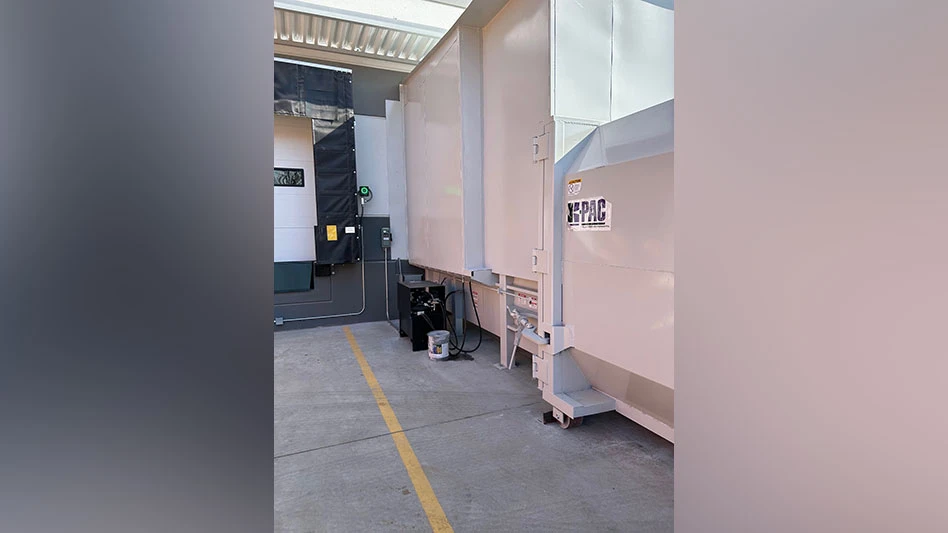
Recycling Today archives
The election of a Labour Party government in the United Kingdom Parliament after a 14-year absence has recycling, waste conversion and alternative energy trade groups, among others, hopeful they will see a boost in government support for their sectors.
Comments from a Labour Party member of Parliament from Wales, on the other hand, express a willingness to slow down a planned conversion to recycled-content steelmaking at a mill in the U.K.
A postelection blog post by Shaun Spiers, executive director of the London-based Green Alliance, opens by noting, “This was not an election fought largely on environmental issues. Nevertheless, it is clear that the parties that campaigned for ambitious climate and nature policies, against a shrill campaign from the right-wing media, won seats.
“The short manifesto statement that ‘Labour is committed to … moving to a circular economy’ should herald big changes in resource use.
“If the new government follows through on these promises, [it] will secure significant green investment to revive the U.K.’s economy, and it will ensure that people and communities across the country feel the benefits of environmental action.”
A trade group in the waste diversion and conversion technology sector, the Anaerobic Digestion and Bioresources Association (ADBA), also quickly issued its congratulations to the party and “welcomes the new government’s emphasis on tackling climate change through rapid growth of renewables.”
ADBA says the Labour Party’s plan includes key climate goals that can be met best through “green gas” expansion. Anaerobic digestion (AD) technology is used to convert collected agricultural and livestock waste, food scraps, yard waste and other discarded materials into a biogas that can be used in several applications.
“The key now is delivery; green gas can and should grow faster than wind, and second only to solar according to International Energy Agency projections,” says Chris Huhne, chair of ADBA. “We can build hundreds of new green gas plants by the time of the next election.
“Energy from home-grown green gas will overtake energy from nuclear by 2029 on current trends. Because green gas is created by using waste streams from farming, food and industry, it is a British resource that can protect us against Putin hikes in gas prices and curb our energy imports.”
In the metals sector, the owners of two different blast furnace/basic oxygen furnace steel mills in the U.K. have spent the past several years negotiating with workers, regional governments and the wider U.K. government regarding plans to convert to recycled-content electric arc furnace (EAF) production.
The U.K. is a scrap-surplus nation that likely could scale back the carbon footprint of production at the two sites by converting to EAF technology. One mill is operated by India-based Tata Steel while the other, known as British Steel, is owned by the China-based Jingye Group.
A July 7 report from BBC News indicates a Labour Party member of Parliament from Wales, where the Tata Steel mill is located, expresses hope the new government can protect more jobs in the midst of that conversion project.
While the BOF-to-EAF conversion projects seem to make sense from a carbon emissions and long-term competitiveness standpoint, the mills have been relative latecomers to the conversion process in part because of political support to retain the maximum number of jobs at the two sites.
Comments offered by Tata Steel to the BBC for its July report seem to indicate the steel producer has no intention of returning to blast furnace production at its Port Talbot, Wales, facility.
“We will be engaging with new ministers over our ambitious plans to invest in and transform Port Talbot with EAF steelmaking, and to support our workers through this necessary but difficult transition,” Rajesh Nair of Tata Steel UK tells BBC.
Tata Steel just idled (permanently, per its conversion plan) one of two blast furnaces at the site with the other scheduled to shut down in September.
Get curated news on YOUR industry.
Enter your email to receive our newsletters.Latest from Recycling Today
- Enfinite forms Hazardous & Specialty Waste Management Council
- Combined DRS, EPR legislation introduced in Rhode Island
- Eureka Recycling starts up newly upgraded MRF
- Reconomy Close the Gap campaign highlights need for circularity
- Nickel carbonate added to Aqua Metals’ portfolio
- EuRIC, FEAD say End-Of-Life Vehicle Regulation presents opportunity for recyclers
- Recyclers likely to feel effects of US-China trade war
- BCMRC 2025 session preview: Navigating battery recycling legislation and regulations







